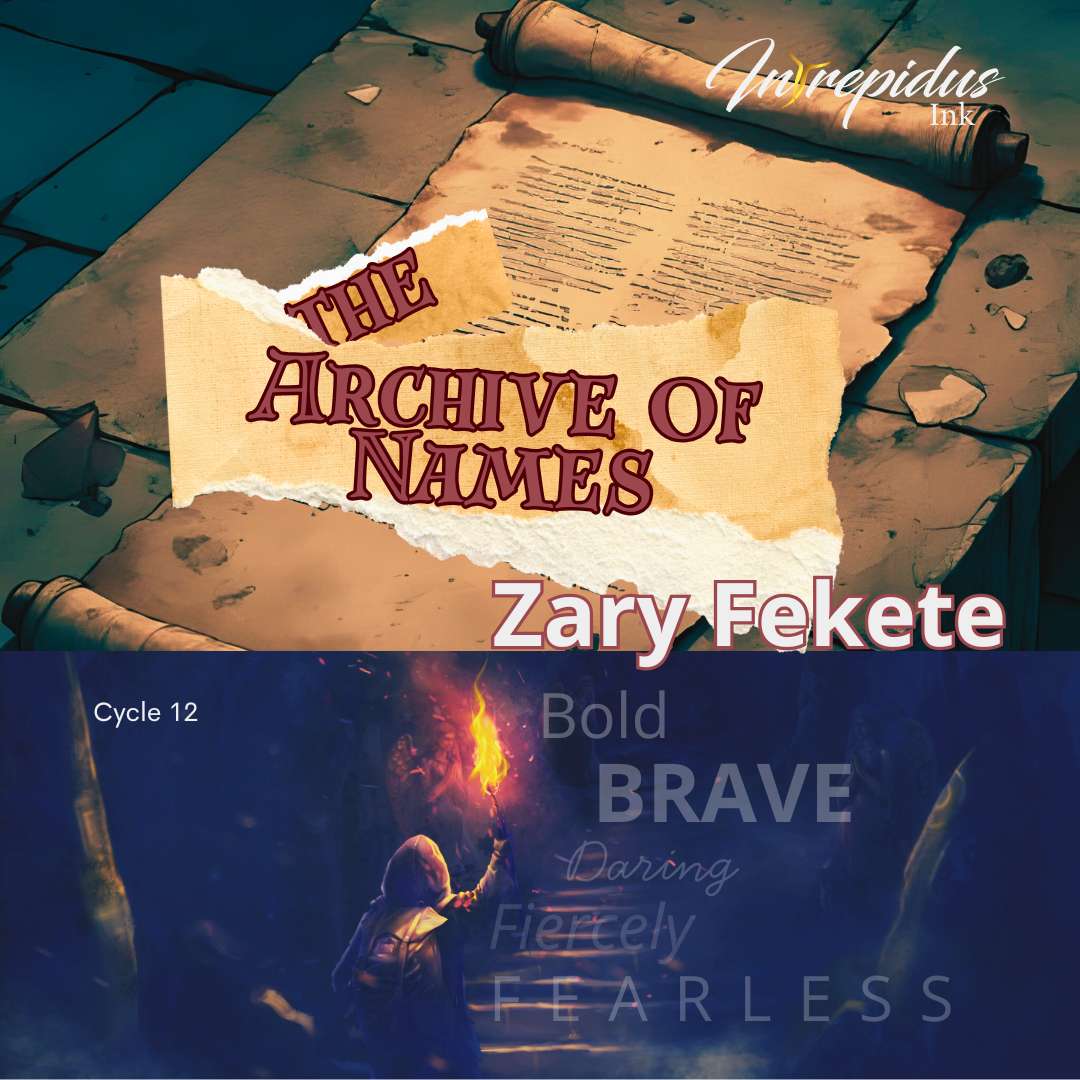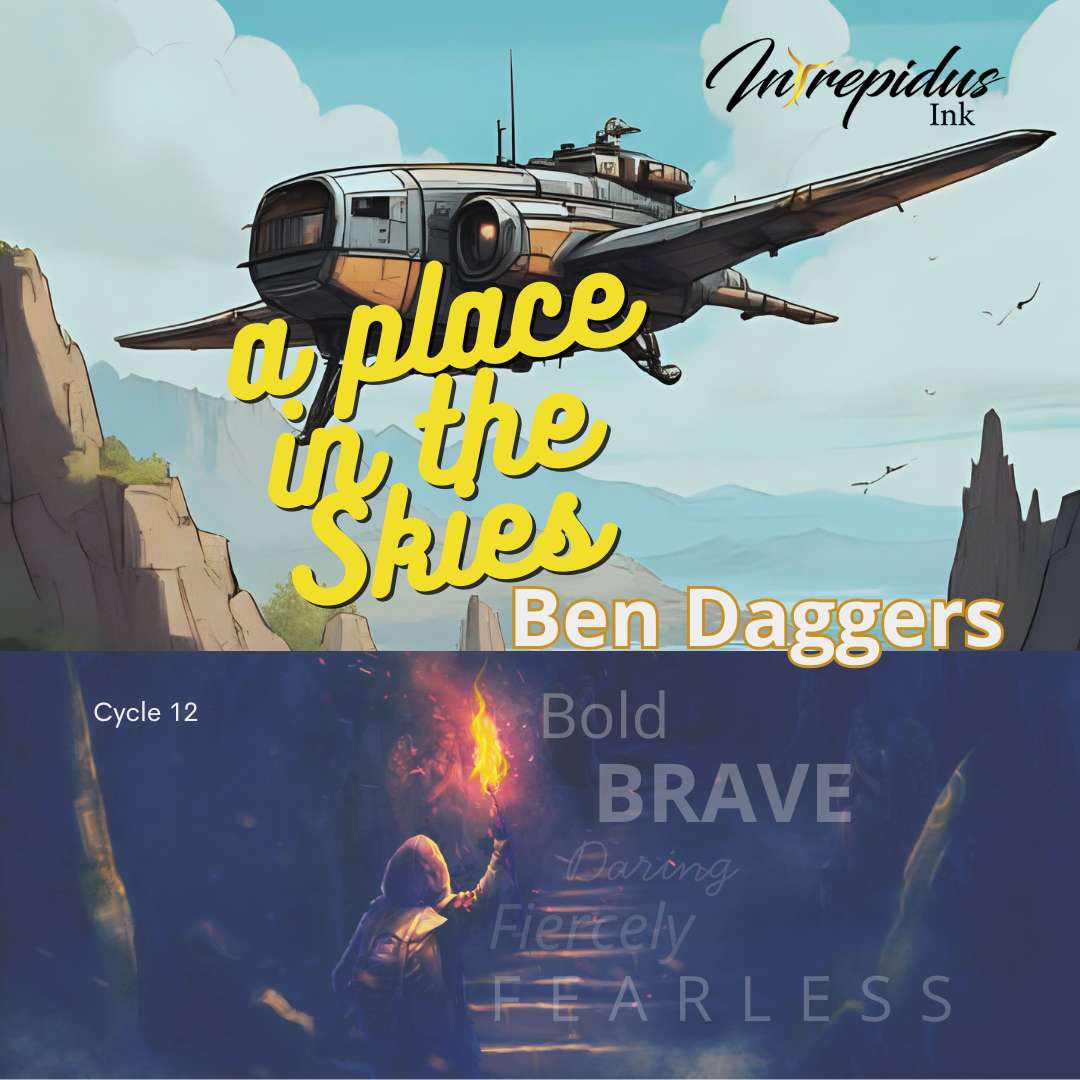

Speculative Fiction
I
magine Genesis, order from disorder.
I sat on the sun-warmed tarmac with seventeen other female prisoners waiting to board a transport named Eagle of Peace. Ironic name for a sinister-looking vessel, which reminded me of something cobbled together by a mad scientist using mismatched nuts and bolts. But the haphazard appearance wasn’t what gave it the creep factor; that distinction belonged to its hull. The engineers, who were the real mad scientists, fabricated it using the skins of our so-called enemies.
When the first Aliens entered our atmosphere, they didn’t arrive in massive ships as we’d always speculated. Instead, they drifted in like a flock of birds, landing unscathed on the Earth’s surface. Creatures whose bodies survived the vacuum of deep space. Beings whose skins offered better protection than anything we’d used on our transports or spacecraft. The Aliens’ objectives were unclear, so OFL—Our Fearless Leaders, did the only thing they thought reasonable to ensure our survival.
They killed them.
The Eagle’s door creaked open. We scrambled to our feet, and guards loaded the eighteen of us single-file onto the monstrous ship. As we passed the skin hull, a flurry of whispers spun around us, like leaves cast into the wind. I shivered. The woman behind me gasped and mumbled a prayer.
Being encased inside another’s skin made mine crawl, and judging from my companions’ reverent silence, they felt similarly. As a distraction, I sat on my hands until they lost sensation, wishing my heart was numb instead. But I needed to suck it up. Everything proceeded as I’d planned.
I’d never experienced hunger like the legions who suffered daily, but I knew how to get caught stealing bread in broad daylight. My arrest guaranteed me a seat among these non-violent criminals bound for Joro, a women’s penal colony on the other side of the world.
The government paid for one-way tickets to Joro. Most convicts never returned after completing their sentences; transport was too expensive. Lucky for me, I didn’t plan on coming back. Had nothing to come back to.
I’d stopped referring to my apartment as home when my husband left. We’d wanted children, two of them. But crippling endometriosis led to a hysterectomy, and a lifetime of dreams perished beneath the surgeon’s scalpel. Reality check and mate.
I threw myself into finishing my graduate degree.
My dissertation focused on pyrophytic plants, which led me to the Aliens. Studies suggested they’d evolved analogous fire-retardant abilities. I dove into all available material and discovered unmistakable parallels, leading me to consider other similarities. I dug deeper.
After the initial Alien massacre, OFL realized they’d missed an opportunity when they’d slaughtered the entire faction. Since Alien skins were more valuable than any Earthly substance, breeding them would’ve been a better option. Praying it wasn’t too late, OFL dispatched emissaries to search for more of the creatures. In a desolate desert, they located a contingent of twelve Aliens.
Joro came to be.
Conceived as a breeding center for the Aliens, OFL staffed the facility with prisoners. Cheap, expendable labor who’d be front-line collateral should the Aliens prove violent or an undiscovered Alien pathogen emerged. Neither happened.
Sixteen years later, there were still no offspring. Splinter groups within OFL fought to cull the Aliens and use their limited skins. Scientists wanted more time and bandied about ridiculous theories: Since the Aliens showed no interest in procreation, maybe they were all the same sex, asexual, androgynous, or hermaphrodites. I found their hypotheses flawed and stemmed from their ridiculous misconception that the Aliens’ physiology paralleled that of a vertebrate. Of course, no one wanted to listen to the speculations of a random doctoral candidate.
Their loss.
I’d solved the problem and headed to Joro to burn the place down.
The facility held up to nine hundred women. The Eagle deposited us atop the biodome structure, a hundred feet above our living quarters. Sand stung my face when I stepped from the transport, and I was grateful for the whistling wind because it obscured the skin whispers. A fellow prisoner met and led us into a freight elevator large enough to hold all of us. Arriving at ground level, we were loosed like free-range livestock. We did as we chose within the confines of the colony’s walls, but our survival depended on us maintaining our thriving community. We grew our food, cared for our sick and elderly, and learned marketable skills. It could have been mistaken for Paradise except for three things: We remained trapped. The closest thing to personal space was our twin beds crammed into dormitory rooms with dozens of other women. And in the center of the dome, captive in a secure habitat, lived a dozen Aliens.
A ticking bomb for which I was the fuse.
As a woman who’d lost the capability of creating life within her own body, I’d determined to create it elsewhere, at any cost.
Tall slips of creatures, the Aliens survived on little but water and the sunlight streaming through the transparent panels of the structure. Occasionally, they’d eat an insect or small reptile, but when given those same animals for potential sustenance, the Aliens ignored the offerings. During my first weeks at Joro, I spent meal breaks from my janitorial job studying them. Throughout the day, they moved as a singular unit around their confines, following the sun. Observing the Aliens up close concretized my beliefs and solidified my purpose. I let it “slip” that I was a botanist, and my work assignment shifted to the germination lab, ensuring access to ammonium nitrate, an integral part of my plan.
We all cared for the Aliens, though there wasn’t much to do. We raked the sandy soil where their footprints tamped it down and ensured their watering troughs were clean. Each prisoner spent a few privileged hours a month with them—privileged because time with the Aliens was palliative, like a day on the beach or a walk in the forest. You could recognize who’d been with them by their calm features and the blissful expression on their faces. Over the months, while I prepared to take action, I, too, savored their company and found humor in the twist that made a bunch of criminals the recipients of such a gift.
I planted a bomb inside the Aliens’ confines during my allotted monthly visit. The Aliens gathered around me as I moved rocks to cover my handiwork. I wondered whether they understood. If anyone had seen me hurrying away from the blast range, they’d have noticed the tension in my expression and known something was amiss. But it was suppertime. My fellow inmates were gathered in the communal dining area.
Pyrophytes needed fire to release their seeds.
The explosion shook the entire biodome. Cracks fissured through the thick, tri-layered panels of glass and plastic. Eight hundred and ten prisoners lived in Joro that day. Eight hundred and nine panicked. Instinct drove them from their dinner tables toward the dome’s exterior edges, looking to escape. I hurried toward its center, ears ringing, sweat stinging my eyes.
From disorder, order. Life.
The bomb destroyed a section of the wall enclosing the Aliens, and smoke billowed from their habitat. Rather than flee the inferno, the Aliens moved deeper inside it. Consumed within the flames, I watched them rub their limbs back and forth over their bodies like a person scrubbing off dead skin with a loofah. As their dermises crisped and peeled away, they stepped clear of the flames. Their damaged carapaces glistened cobalt and orange.
“This way!” I shouted, gesturing for them to follow me.
I didn’t know whether they’d understand, but they flocked toward me. We crowded into the elevator, and the smell of burning wood and flesh was suffocating. Heat radiated from their bodies. I shut the doors, pressed the button, and we began our ascent. Joro’s elevator had two stops: the floor of the biodome and its roof, where prisoners sometimes went to stargaze. We were allowed to gather there because the only way off the dome was by transport or a suicidal jump. I believed the Aliens would need neither option.
As we stepped out into the desert air, a grit-laden gust abraded my skin like sandpaper. Tiny particles stuck to my sweat. In the distance, I saw a convoy of black SUVs heading our way. I had no idea OFL’s agents were so close.
“Late,” I said. “Too late.”
The Aliens held onto one another and moved toward the center of the transport landing pad. There, the driving winds stripped the crust from their bodies. Little bits carried away like ash from a campfire.
It was exactly as I’d envisioned. Haphazard. Disorderly. Beautiful.
Imagine the individual seeds of a dandelion—each attached to a wind-catching pappus. One plant disperses up to fifteen hundred tiny packages of DNA, which are set adrift with zero control over their trajectory. They cavort pell-mell in a dance as old as creation. All that controls their eventual destination is a collision with a bit of soil.
The Aliens splintered apart, and I marveled as the dozen became infinite.
OFL arrived and fled their vehicles, desperate to gather the bits and pieces to salvage their investment. Preoccupied because they believed the Aliens still belonged to them, they failed to witness the miracle.
Visualize chaos.
Ever try to rid a garden of dandelions?
It’s impossible. Eventually, the weeds take over.

Author Bio

Andrea Goyan is an award-winning author. Recent stories are available in Dark Matter Presents: Monstrous Futures, All Worlds Wayfarer, Flash Fiction Magazine, and The Molotov Cocktail. She’s also the co-host of Metastellar Magazine’s “Long Lost Friends.” Episodes are available on YouTube. You can find more of her words on her website, www.andreagoyan.com, or follow her on Twitter @AndreaGoyan or Bluesky @andreagoyan.bsky.social

